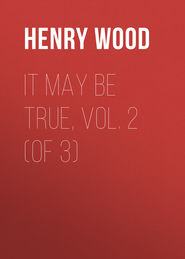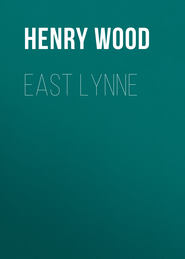По всем вопросам обращайтесь на: info@litportal.ru
(©) 2003-2024.
✖
The Shadow of Ashlydyat
Настройки чтения
Размер шрифта
Высота строк
Поля
“Is not Lady Godolphin here, papa?”
“She must be here by this time. I wish I could see her carriage: you must get into it.”
“I did not come for that, papa,” returned Bessy, with a touch of her warm temper.
“My dear, I wish you to join her. I do not like to see you here on foot.”
“I shall set the fashion, papa,” laughed Bessy, again. “At the great meet next year, you will see half the pretenders of the county toiling here on foot. I say I am Bessy Godolphin.”
The knight ranged his eyes over the motley group, but he could not discern his wife. Sturdy, bluff old fox-hunters were there in plenty, and well-got-up young gentlemen, all on horseback, their white cords and scarlet coats gleaming in the sun. Ladies were chiefly in carriages; a few were mounted, who would ride quietly home again when the hounds had thrown off; a very few—they might be counted by units—would follow the field. Prior’s Ash and its neighbourhood was supplied in a very limited degree with what they were pleased to call masculine women: for the term “fast” had not then come in. Many a pretty woman, many a pretty girl was present, and the sportsmen lingered, and were well pleased to linger, in the sunshine of their charms, ere the business, for which they had come out, began, and they should throw themselves, heart and energy, into it.
On the outskirts of the crowd, sitting her horse well, was a handsome girl of right regal features and flashing black eyes. Above the ordinary height of woman, she was finely formed, her waist slender, her shoulders beautifully modelled. She wore a peculiar dress, and, from that cause alone, many eyes were on her. A well-fitting habit of bright grass-green, the corsage ornamented with buttons of silver-gilt; similar buttons were also at the wrists, but they were partially hidden by her white gauntlets. A cap, of the same bright green, rested on the upper part of her forehead, a green-and-gold feather on its left side glittering as the sun’s rays played upon it. It was a style of dress which had not yet been seen at Prior’s Ash, and was regarded with some doubt. But, as you are aware, it is not a dress in itself which is condemned or approved: it depends upon who wears it: and as the young lady wearing this was just now the fashion at Prior’s Ash, feather and habit were taken into favour forthwith. She could have worn none more adapted to her peculiar style of beauty.
Bending to his very saddle-bow, as he talked to her—for, though she was tall, he was taller still—was a gentleman of courtly mien. In his fine upright figure, his fair complexion and wavy hair, his chiselled features and dark blue eyes, might be traced a strong resemblance to Sir George Godolphin. But the lips had a more ready smile upon them than Sir George’s had ever worn, for his had always been somewhat of the sternest; the blue eyes twinkled with a gayer light when gazing into other eyes, than could ever have been charged upon Sir George. But the bright complexion had been Sir George’s once; giving to his face, as it now did to his son’s, a delicate beauty, almost as that of woman. “Graceless George,” old Sir George was fond of calling him; but it was an appellation given in love, in pride, in admiration. He bent to his saddle-bow, and his gay blue eyes flashed with unmistakable admiration into those black ones as he talked to the lady: and the black eyes most certainly flashed admiration back again. Dangerous eyes were those of Charlotte Pain’s! And not altogether lovable.
“Do you always keep your promises as you kept that one yesterday?” she was asking him.
“I did not make a promise yesterday—that I remember. Had I made one to you, I should have kept it.”
“Fickle and faithless,” she cried. “Men’s promises are as words traced upon the sand. When you met me yesterday in the carriage with Mrs. Verrall, and she asked you to take compassion on two forlorn dames, and come to Ashlydyat in the evening and dissipate our ennui, what was your answer?”
“That I would do so, if it were possible.”
“Was nothing more explicit implied?”
George Godolphin laughed. Perhaps his conscience told him that he had implied more, in a certain pressure he remembered giving to that fair hand, which was resting now, gauntleted, upon her reins. Gay George had meant to dissipate Ashlydyat’s ennui, if nothing more tempting offered. But something more tempting did offer: and he had spent the evening in the company of one who was more to him than was Charlotte Pain.
“An unavoidable engagement arose, Miss Pain. Otherwise you may rely upon it I should have been at Ashlydyat.”
“Unavoidable!” she replied, her eyes gleaming with something very like anger into those which smiled on her. “I know what your engagement was. You were at Lady Godolphin’s Folly.”
“Right. Commanded to it by my father.”
“Oh!”
“Solicited, if not absolutely commanded,” he continued. “And a wish from Sir George now bears its weight: we may not have him very long with us.”
A smile of mockery, pretty and fascinating to look upon, played upon her rich red lips. “It is edifying to hear these filial sentiments expressed by Mr. George Godolphin! Take you care, sir, to act up to them.”
“Do you think I need the injunction? How shall I make my peace with you?”
“By coming to Ashlydyat some other evening while the present moon lasts. I mean, while it illumines the early part of the evening.”
She dropped her voice to a low key, and her tone had changed to seriousness. George Godolphin looked at her in surprise.
“What is the superstition,” she continued to whisper, “that attaches to Ashlydyat?”
“Why do you ask me this?” he hastily said.
“Because, yesterday evening, when I was sitting on that seat under the ash-trees, watching the road from Lady Godolphin’s Folly—well, watching for you, if you like it better: but I can assure you there is nothing in the avowal that need excite your vanity, as I see it is doing. When a gentleman makes a promise, I expect him to keep it; and, looking upon your coming as a matter of course, I did watch for you; as I might watch for one of Mrs. Verrall’s servants, had I sent him on an errand and expected his return.”
“Thank you,” said George Godolphin, with a laugh. “But suffer my vanity to rest in abeyance for a while, will you, and go on with what you were saying?”
“Are you a convert to the superstition?” she inquired, disregarding the request.
“N—o,” replied George Godolphin. But his voice sounded strangely indecisive. “Pray continue, Charlotte.”
It was the first time he had ever called her by her Christian name: and though she saw that it was done in the unconscious excitement of the moment, her cheeks flushed to a deeper crimson.
“Did you ever see the Shadow?” she breathed.
He bowed his head.
“What form does it take?”
George Godolphin did not answer. He appeared lost in thought, as he scored his horse’s neck with his hunting-whip.
“The form of a bier, on which rests something covered with a pall, that may be supposed to be a coffin; with a mourner at the head and one at the foot?” she whispered.
He bowed his head again: very gravely.
“Then I saw it last night. I did indeed. I was sitting under the ash-trees, and I saw a strange shadow in the moonlight that I had never seen before–”
“Where?” he interrupted.
“In that wild-looking part of the grounds as you look across from the ash-trees. Just in front of the archway, where the ground is bare. It was there. Mr. Verrall says he wonders Sir George does not have those gorse-bushes cleared away, and the ground converted into civilized land, like the rest of it.”
“It has been done, but the bushes grow again.”
“Well, I was sitting there, and I saw this unusual shadow. It arrested my eye at once. Where did it come from, I wondered: what cast it? I never thought of the Ashlydyat superstition; never for a moment. I only thought what a strange appearance the shadow wore. I thought of a lying-in-state; I thought of a state funeral, where the coffin rests on a bier, and a mourner sits at the head and a mourner at the foot. Shall I tell you,” she suddenly broke off, “what the scene altogether looked like?”
“Do so.”
“Like a graveyard. They may well call it the Dark Plain! The shadow might be taken for a huge tomb with two images weeping over it, and the bushes around assumed the form of lesser ones. Some, square; some, long; some, high; some, low; but all looking not unlike graves in the moonlight.”
“Moonlight shadows are apt to bear fanciful forms to a vivid imagination, Miss Pain,” he lightly observed.
“Have not others indulged the same fancy before me? I remember to have heard so.”
“As they have said. They never took the form to my sight,” he returned, with a half-smile of ridicule. “When I know bushes to be bushes, I cannot by any stretch of imagination magnify them into graves. You must have had this Ashlydyat nonsense in your head.”
“I have assured you that I had not,” she rejoined in a firm tone. “It was only after I had been regarding it for some time—and the longer I looked, the plainer the shadow seemed to grow—that I thought of the Ashlydyat tale. All in an instant the truth flashed upon me—that it must be the apparition–”
“The what, Miss Pain?”
“Does the word offend you? It is a foolish one. The Shadow, then. I remembered that the Shadow, so dreaded by the Godolphins, did take the form of a bier, with mourners weeping at its–”
“Was said to take it,” he interposed, in a tone of quiet reproof; “that would be the better phrase. And, in speaking of the Shadow being dreaded by the Godolphins, you allude, I presume, to the Godolphins of the past ages. I know of none in the present who dread it: except my superstitious sister, Janet.”











